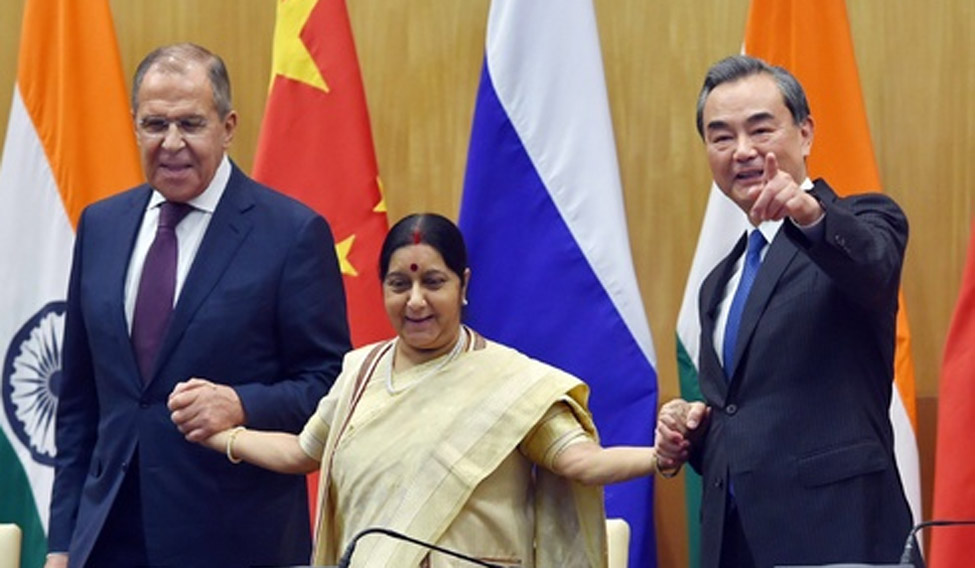Three rapid developments in the neighbourhood have shaken up India, though the Ministry of External Affairs is putting up a brave front.
K.P. Oli, who leans toward China, seems poised to become the next prime minister of Nepal. Maldives, despite its declared 'India First' policy, has signed a free trade agreement (FTA) with China and Sri Lanka has handed over its Hambantota port to China on lease for 99 years.
For all these three neighbours, India professes to be the big brother, or Bade Bhaiyya, as External Affairs Minister Sushma Swaraj likes to put it. But the China-tilting sentiments of the neighbours has been a cause of concern, whatever the diplomats may say. All three countries, on various occasions, have expressed the same sentiment: that their India-first policy holds, but given the volume of their development needs, they will accept all help that comes their way.
India said it welcomes the first-ever provincial elections in Nepal, as well as the Parliamentary ones.
MEA spokesperson Ravish Kumar said he had not seen the Maldives FTA, only heard reports on it.
He expressed hope that Maldives, with whom India had close and historical ties, and a relationship on which India put great importance on, would “keep in mind our security concerns and our sensitivities.''
He gave the same comment for the Hambantota port development too, adding that India's relationship with Sri Lanka was independent of any third country.
Swaraj recently met Chinese Foreign Minister Wang Yi, during the Russia-India-China (RIC) meet in New Delhi.
A slew of issues concerning both countries were discussed and India again expressed the hope that China would keep in mind India's sensitivities. Both noted the challenge the Doklam standoff posed to the relationship and were happy it was resolved with “the disengagement of troops at the face-off site through concerted diplomatic communication.”
India also expressed concern over the darkening waters on the River Siang. The ministry of water resources is investigating the issue. While India has established mechanisms fit for resolving issues of rivers that originate in China, clearly the series of international developments that involve China will take immense diplomatic skills to navigate.
Will the Astana Consensus, which says let's not escalate differences into disagreements, be enough?






